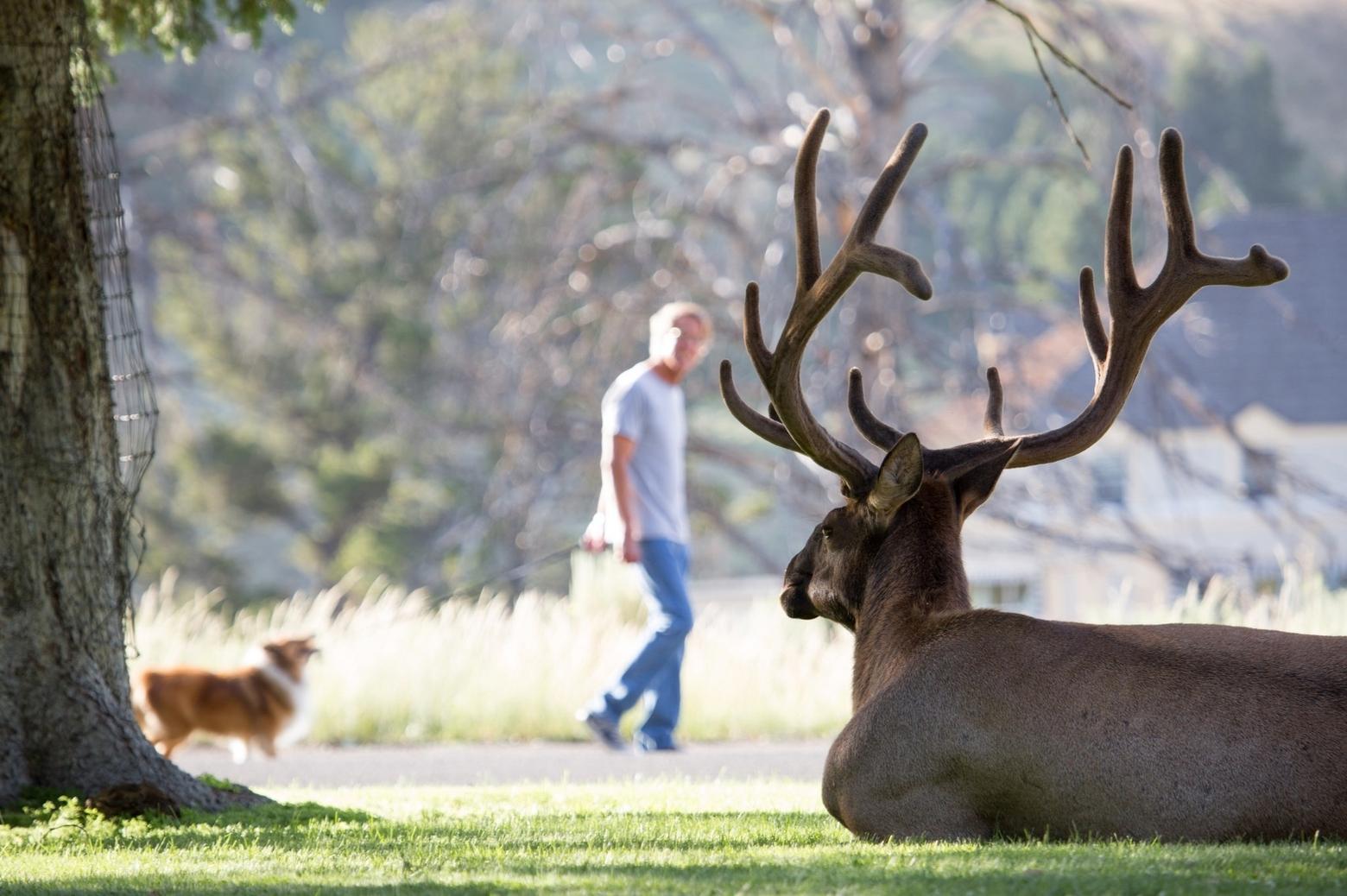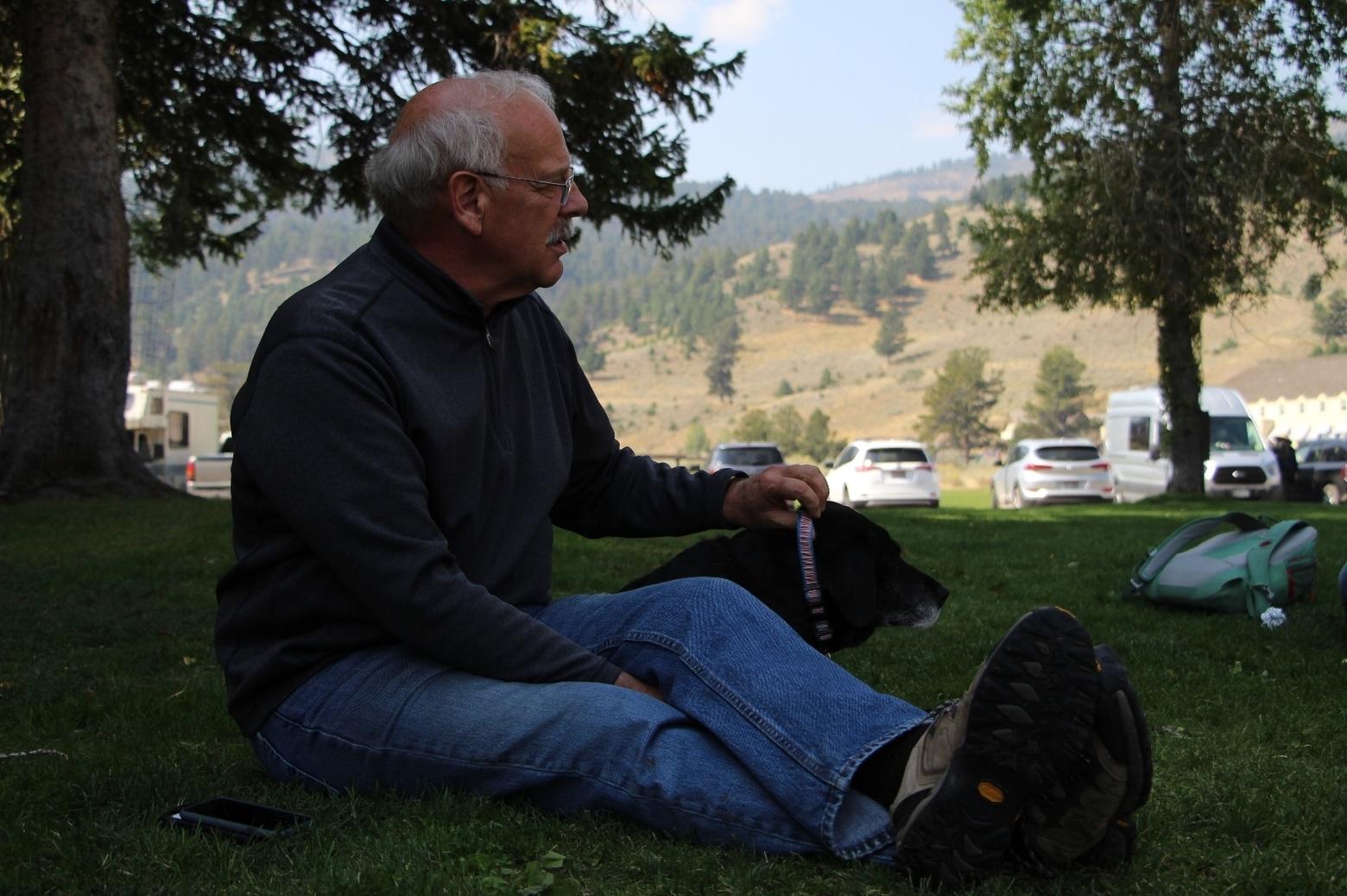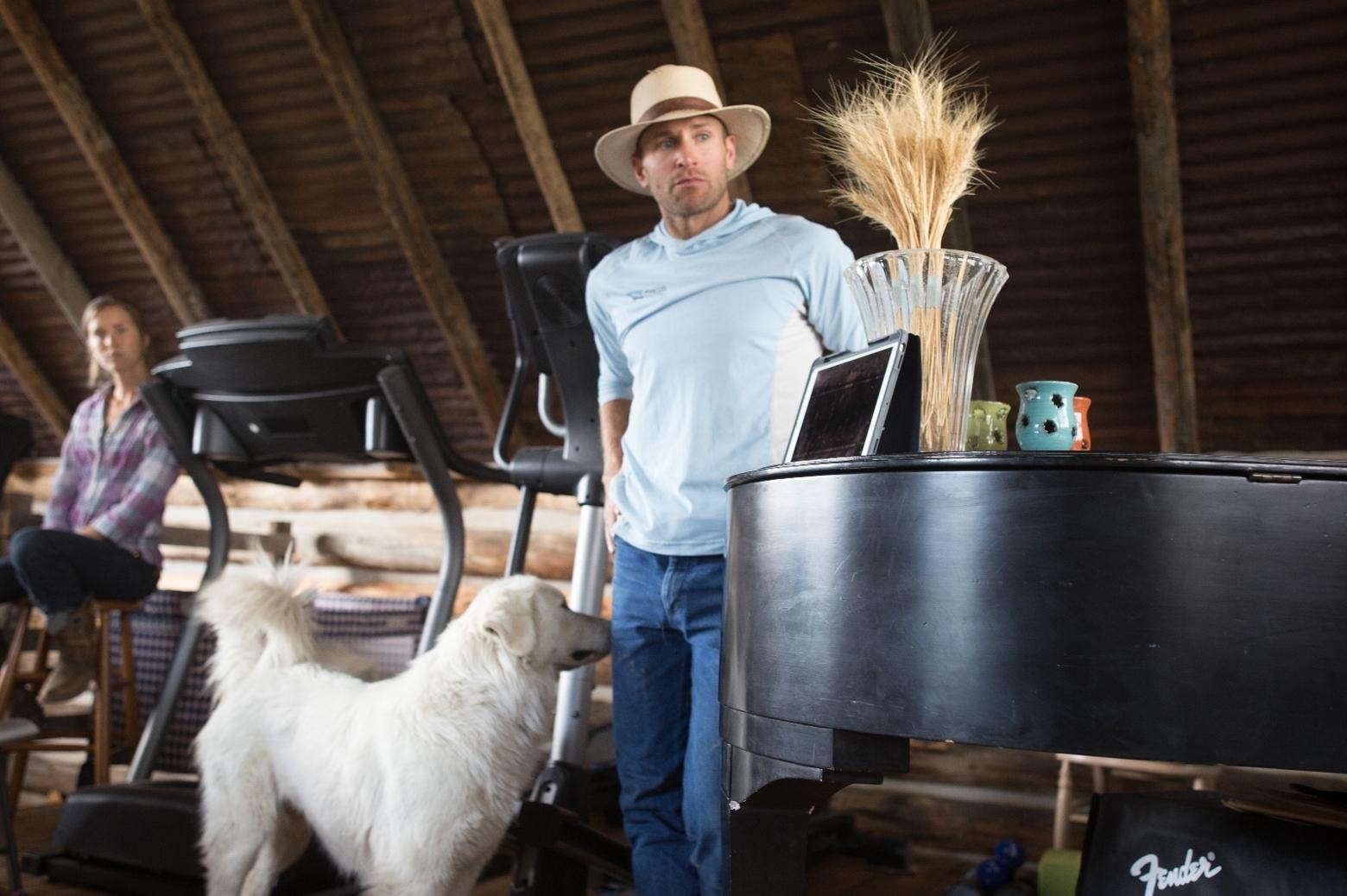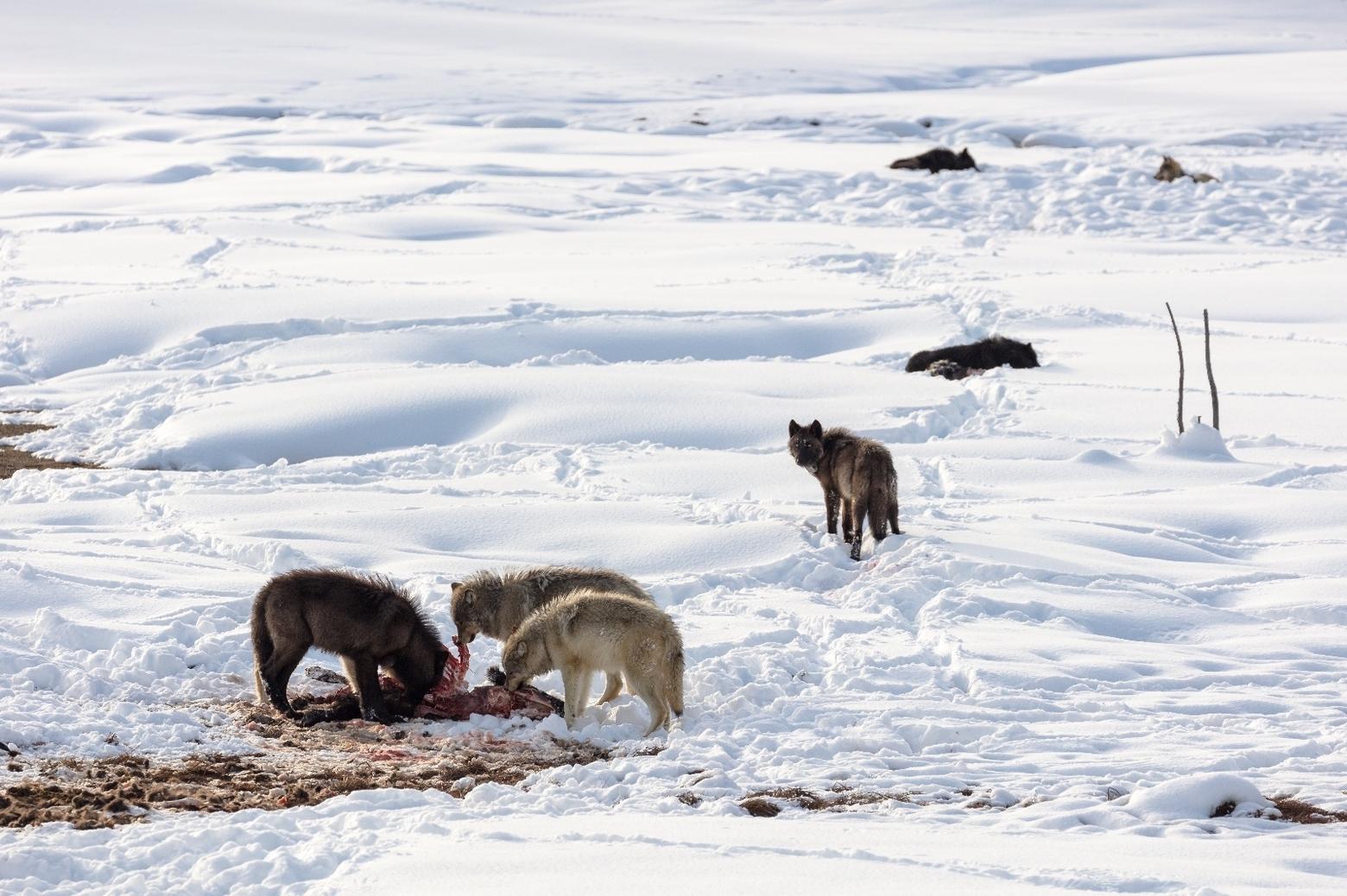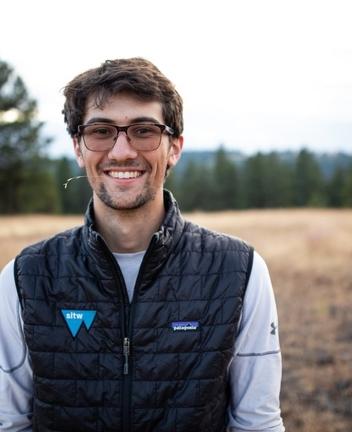Back to StoriesEncountering The Modern Garden Of Eden In Two Variations
October 15, 2018
Encountering The Modern Garden Of Eden In Two VariationsNoah Dunn contrasts public Yellowstone with a private ranch next door
We drove to Yellowstone National Park in September and sat with Superintendent Dan Wenk on a manicured lawn that was an oasis in a cement desert of administrative buildings. From beneath a deep brow, Wenk’s bright gaze passed over our heads, and he pointed a broad hand to a parking lot a hundred feet away.
“Wildlife,” he said, “doesn’t respect political boundaries.”
Between cars, two bull elk were bugling admonishments to one another while tourists snapped photos. Yellowstone, eco-tourist mecca, has fallen victim to its own success, as its wildlife become progressively more habituated to the park’s increasing millions of annual visitors.
Like Yellowstone, the American West is at a crossroads. Ninety percent of its population lives in metropolitan areas, says Mark Haggerty, an analyst with Bozeman, Montana-based Headwaters Economics, yet it also hosts three-fourths of our public land.
These extremes in the battle of conservation—one artificial and industrial, the other an American Eden, preternaturally and prehistorically wild—are both vital, but neither are scalable; the future of conservation lies between these poles, in the rural Weston working lands like the Anderson ranch up Tom Miner Basin just north of Yellowstone Park.
Daniel Anderson, who is a thirtysomething, doesn’t resemble a wolf. He’s presentable and articulate and speaks with a quiet intensity. Framed by cowboy poetry posters in the refurbished barn he rents out as an Air BnB, he looks quite the gentleman rancher. Nonetheless, Daniel feels an affinity for wolves: “If you wanna know why we have such a hard time with wolves,” he says, leaning against a baby grand piano, “it’s ‘cause we’re lookin’ in the mirror.”
The Andersons have been ranching in the Tom Miner, separated from Yellowstone only by the Gallatin Mountains, for four generations. Daniel’s grandfather, Andy, relocated to Montana to mend the wounds of his heart and mind sustained in a Nazi POW camp. There began the Andersons’ divergence from the mindset of conquering cowboys to the more nuanced and wholistic approach of land stewardship.
When Daniel was a child, wolves reintroduced to Yellowstone found their way over the Gallatins and into the basin. Some neighbors howled for a second extirpation, but the Andersons chose to welcome and coexist with wolves. Why? Life would be easier without them; though livestock depredations are negligible, the indirect costs of range riders and fladry are not.
There is no need for wolves; generations of Andersons survived without them. Yet despite a new economic and cultural context which forces ranchers to adapt in order to keep their heads above water, wolves have been welcomed home. Why?
There is no need for wolves; generations of Andersons survived without them. Yet despite a new economic and cultural context which forces ranchers to adapt in order to keep their heads above water, wolves have been welcomed home. Why?
I heard the answer at 5:30 in the morning on the same day we met Dan Wenk. Before any slivers of sunrise could splinter the grass’s frozen blanket, I stood at the edge of our camp in the hinterlands of the Anderson ranch. Daniel appeared behind me and touched me on the elbow.
“You hear that?” he asked. “The wolves, way off. Listen.”
I followed his gaze northward and distinguished a miles-muted howl. In the frosted-glass light presaging dawn, I could see Daniel smile. A silver smear of breath hung frozen in front of our faces, and we looked in the mirror.
This Garden was not void of human presence but defined by it, just as it was defined by the wild. It was not where we played the voyeur, or the tourist, or God. Eden was where the human and the nonhuman coexisted, and Eden is the place where we accept that we are not the sole executors of nature’s estate and welcome wildlife as our co-stewards.
The more we learn, the more it becomes apparent that we cannot grasp the scope of our actions’ impacts on ecosystems whose complexity surpasses any conscious understanding.
We need to enlist those who don’t seek to understand. Wildlife acts according to instinct sculpted by millennia of natural selection, not the sum of cultural biases or even the best available data, and all living things have a stake and function in slowing the decline of the planet. By transforming the working West to a shared, rather than permitted, habitat, we can pool those functions.
Why invest in conservation? Because we need to replant the Garden.
Related Stories
August 6, 2018
The Forgotten Westerners: 'East of Billings'
Beyond the hipster havens of Bozeman and Jackson Hole, the pain of small towns is real. MoJo's new columnist Alexis Bonogofsky...
January 19, 2018
Amid Partisan Jousting And Talk Of Government Shutdown, Why National Parks Matter
One teenager's desperate pilgrimage to see Old Faithful erupt is reminder of why we need grown adults making decisions in Congress...
January 17, 2018
Yellowstone Investigates Illegal Release of 52 Park Bison From Quarantine
Park officials say criminal trespass undermines effort to get animals transplanted on native reservations

